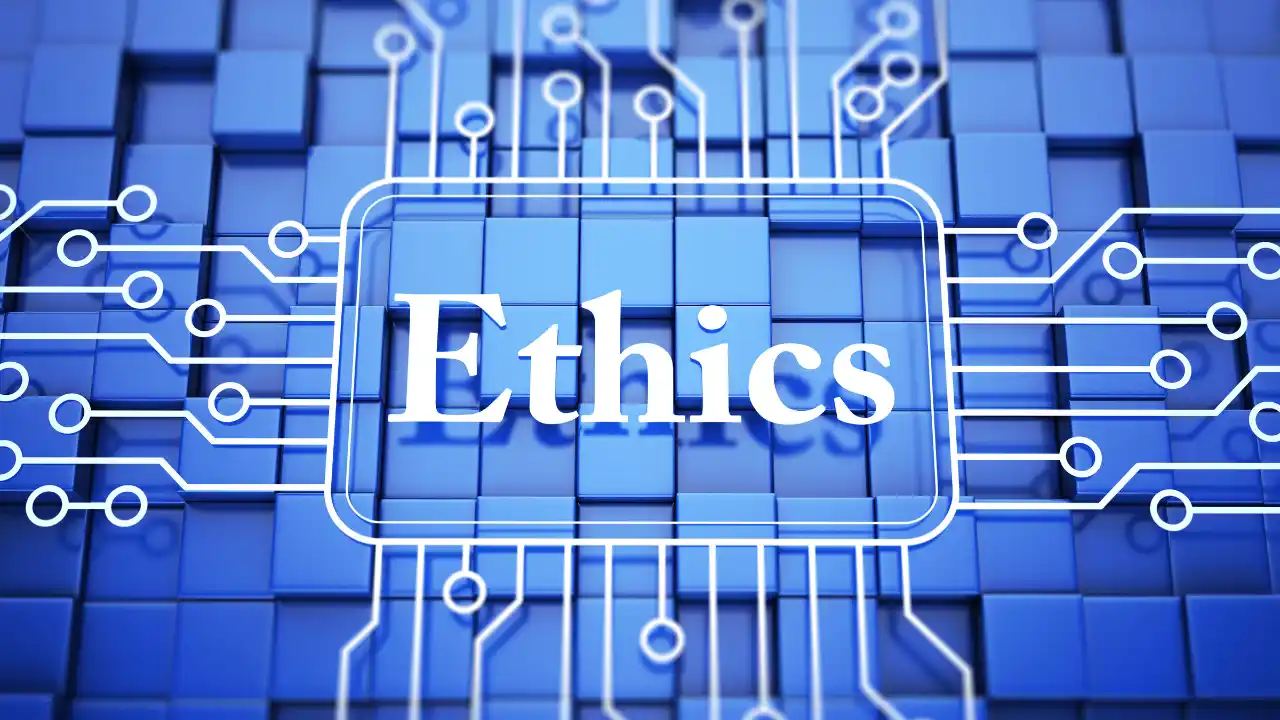The rapid integration of artificial intelligence into workplace environments has created an unprecedented ethical landscape that challenges traditional notions of fairness, privacy, and human dignity. As organizations increasingly rely on algorithmic decision-making systems for everything from hiring and performance evaluation to resource allocation and strategic planning, leaders find themselves navigating uncharted territories where the consequences of technological choices ripple through human lives in ways both visible and hidden.
This transformation extends far beyond simple automation of routine tasks. Modern AI systems are making complex judgments about employee capabilities, predicting career trajectories, and influencing fundamental aspects of work life that once resided firmly in the domain of human discretion. The ethical implications of these developments demand urgent attention from organizational leaders who must balance efficiency gains with moral responsibilities to their workforce and broader society.
Invisible Algorithms Shaping Human Destinies
Within today’s workplaces, artificial intelligence operates as an invisible force that quietly shapes career paths, compensation decisions, and professional opportunities. Resume screening algorithms determine which candidates receive human attention, while performance analytics systems identify employees for promotion or termination. These digital gatekeepers often embed biases that their creators never intended, perpetuating historical inequities or creating entirely new forms of discrimination that operate at unprecedented scale and speed.
The opacity of these systems presents particular challenges for ethical leadership. When an AI system flags an employee as a flight risk or rates their performance below expectations, the underlying reasoning often remains impenetrable even to the system’s operators. This black box phenomenon creates accountability gaps where no individual can fully explain or justify decisions that profoundly impact human lives. Leaders must grapple with the fundamental question of whether algorithmic efficiency justifies the sacrifice of transparency and human understanding in critical workplace decisions.
Redefining Privacy in the Age of Perpetual Monitoring
Digital surveillance capabilities have transformed workplace privacy from a clear boundary into a complex spectrum of competing interests. Modern AI systems can analyze keystroke patterns to assess employee stress levels, monitor email communications for signs of disengagement, and track physical movements to optimize workspace utilization. While these capabilities promise enhanced productivity and employee wellbeing, they also create unprecedented opportunities for intrusive monitoring that extends far beyond traditional workplace boundaries.
The ethical challenge lies not merely in what data organizations can collect, but in how they choose to use the intimate insights that AI systems can derive from seemingly innocuous workplace behaviors. Predictive models can infer personal information about employees’ health conditions, financial stress, family situations, and career intentions based on subtle patterns in their digital footprints. Leaders must establish clear boundaries that protect employee dignity while leveraging AI’s potential to create more supportive and effective work environments.
Algorithmic Bias and the Amplification of Inequality
Artificial intelligence systems often function as amplifiers of existing societal biases, transforming subtle prejudices into systematic discrimination that operates with mechanical precision. Historical hiring data used to train recruitment algorithms may encode decades of discriminatory practices, while performance evaluation systems may perpetuate cultural biases that favor certain communication styles or work patterns over others. The mathematical objectivity of these systems can create a false sense of fairness that obscures their role in perpetuating or even exacerbating workplace inequalities.
The scale at which AI systems operate means that biased algorithms can impact thousands of employees simultaneously, creating systemic patterns of discrimination that would be impossible to achieve through individual human bias alone. Leaders must recognize that implementing AI systems without careful attention to bias mitigation may actually worsen workplace equity rather than improve it. This reality demands proactive measures to identify, measure, and correct algorithmic biases before they become embedded in organizational decision-making processes.
Human Agency in an Automated World
The increasing sophistication of workplace AI systems raises fundamental questions about human agency and autonomy in professional environments. When algorithms determine work assignments, schedule meetings, and prioritize tasks, employees may find their professional agency significantly constrained by systems they neither understand nor control. This erosion of human autonomy can undermine job satisfaction, professional development, and the sense of meaningful work that drives employee engagement and organizational success.
Leaders must carefully balance the efficiency gains of automated decision-making with the human need for agency and control over professional destinies. Creating spaces for human override of algorithmic decisions, ensuring transparency in automated processes, and maintaining meaningful human involvement in critical decisions becomes essential for preserving employee dignity and organizational culture. The goal should be augmenting human capabilities rather than replacing human judgment in areas that fundamentally affect employee wellbeing and career development.
The Responsibility Gap in AI-Driven Decisions
As AI systems assume greater responsibility for workplace decisions, traditional accountability structures become increasingly inadequate. When an algorithm makes a hiring decision or performance evaluation, determining responsibility for outcomes becomes complex as accountability diffuses across system designers, data providers, algorithm trainers, and organizational implementers. This responsibility gap creates ethical hazards where harmful outcomes may occur without clear pathways for redress or correction.
Establishing clear accountability frameworks for AI-driven decisions requires leaders to think beyond traditional organizational hierarchies toward new models of distributed responsibility. This includes creating mechanisms for employees to understand, challenge, and appeal algorithmic decisions that affect them. Organizations must also develop processes for regularly auditing AI systems to identify and correct problematic patterns before they cause significant harm to individuals or groups.
Cultural Transformation and Ethical Leadership
The integration of AI into workplace environments necessitates fundamental cultural shifts that extend far beyond technological implementation. Organizations must develop new norms, values, and practices that address the ethical challenges of human-AI collaboration while preserving the human elements that make work meaningful and fulfilling. This cultural transformation requires leadership that can navigate the tension between technological capability and human values.
Ethical AI implementation demands ongoing dialogue between technical teams, human resources professionals, and employees at all levels of the organization. Leaders must foster cultures of transparency where the capabilities and limitations of AI systems are openly discussed, and where employees feel empowered to raise concerns about algorithmic decision-making that affects their work lives. This includes creating safe channels for reporting potential bias or unfair treatment by automated systems.
Preparing for an Uncertain Future
The rapid pace of AI development means that today’s ethical frameworks may prove inadequate for tomorrow’s technological capabilities. Leaders must develop adaptive approaches that can evolve with advancing technology while maintaining core commitments to human dignity, fairness, and transparency. This requires building organizational capabilities for ongoing ethical assessment and adjustment of AI systems as they become more sophisticated and pervasive.
Future workplace AI systems may possess capabilities that are difficult to imagine today, from reading emotional states through biometric data to predicting individual behavior with unprecedented accuracy. Preparing for this future requires leaders to establish ethical principles and governance structures that can guide decision-making even as the technological landscape continues to evolve rapidly.
Stakeholder Engagement and Collective Responsibility
Effective ethical AI implementation requires engagement with diverse stakeholders including employees, customers, regulatory bodies, and community members who may be affected by organizational AI practices. Virtual HR services play an increasingly important role in managing these complex stakeholder relationships, providing specialized expertise in navigating the human dimensions of AI implementation while ensuring compliance with evolving regulatory requirements and maintaining organizational culture during technological transitions.
Building trust in AI systems requires transparency not only within organizations but also with external stakeholders who may be impacted by algorithmic decisions. This includes clear communication about how AI systems are used, what data they collect, and how decisions that affect individuals are made. Organizations that proactively engage with stakeholders on AI ethics are better positioned to identify potential problems early and build sustainable approaches to human-AI collaboration.
Governance Frameworks for Ethical AI
Establishing robust governance frameworks for workplace AI requires balancing multiple competing interests while maintaining operational effectiveness. These frameworks must address data governance, algorithmic transparency, human oversight, and accountability mechanisms while remaining flexible enough to adapt to changing technological capabilities and regulatory requirements. Effective governance also requires ongoing monitoring and assessment to ensure that ethical principles translate into practical outcomes that protect employee interests.
Leaders must also consider the global nature of modern organizations and the varying regulatory and cultural contexts in which they operate. AI ethics frameworks must be sophisticated enough to address different legal requirements and cultural values while maintaining consistent core principles that protect human dignity and promote fairness across all organizational contexts.
Conclusion
The ethical challenges of AI in the workplace represent one of the defining leadership issues of our time, requiring unprecedented collaboration between technical expertise and human wisdom. Success in navigating these challenges depends not on finding perfect solutions but on developing adaptive approaches that can evolve with advancing technology while maintaining unwavering commitment to human dignity and fairness. Leaders who embrace transparency, engage diverse stakeholders, and prioritize human agency alongside technological efficiency will be best positioned to harness AI’s transformative potential while avoiding its significant ethical pitfalls. The decisions made today about workplace AI will shape the future of human work for generations to come, making ethical leadership in this domain both a tremendous responsibility and an extraordinary opportunity to create more equitable, productive, and fulfilling work environments for all.







Leave a Reply